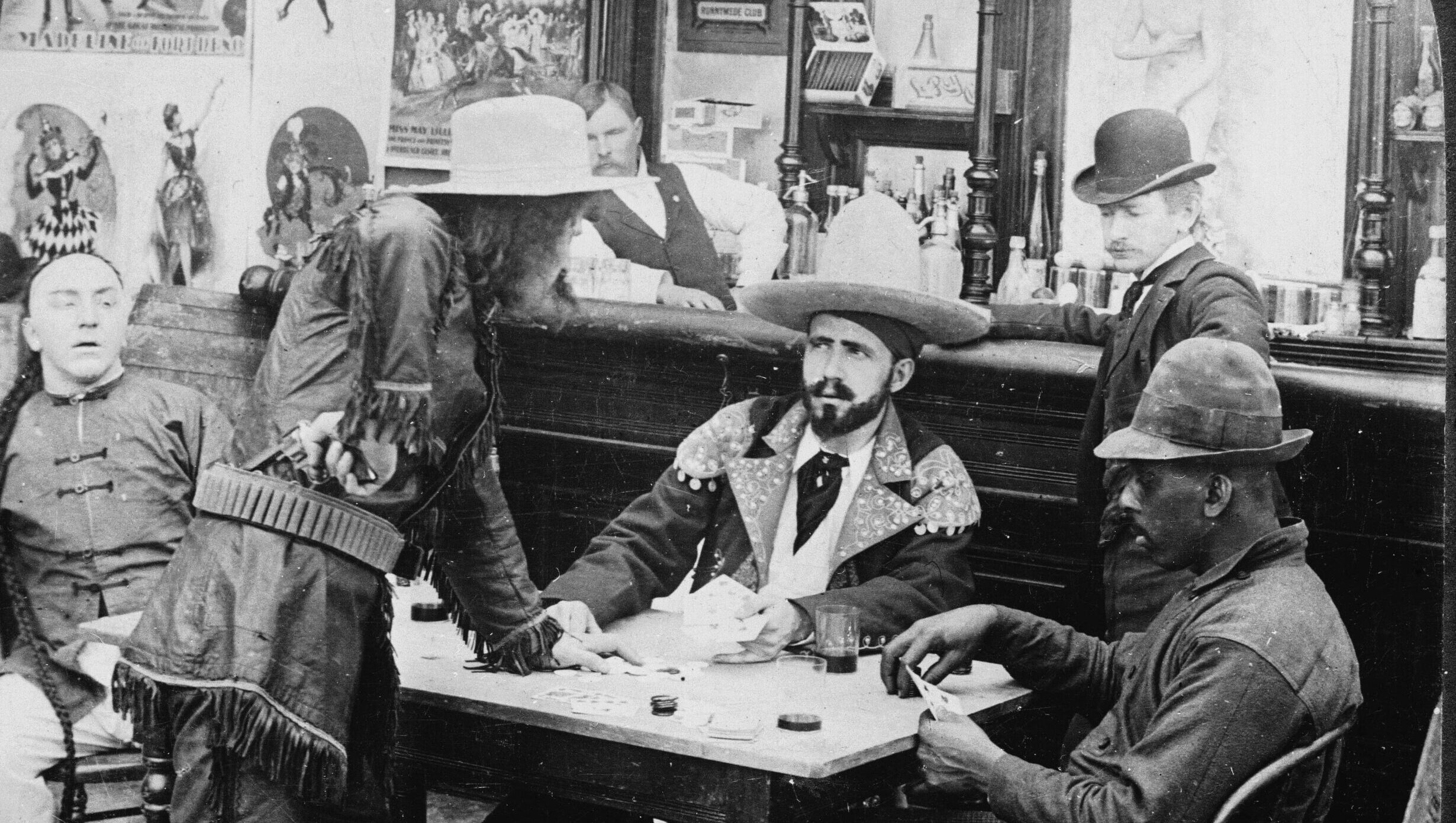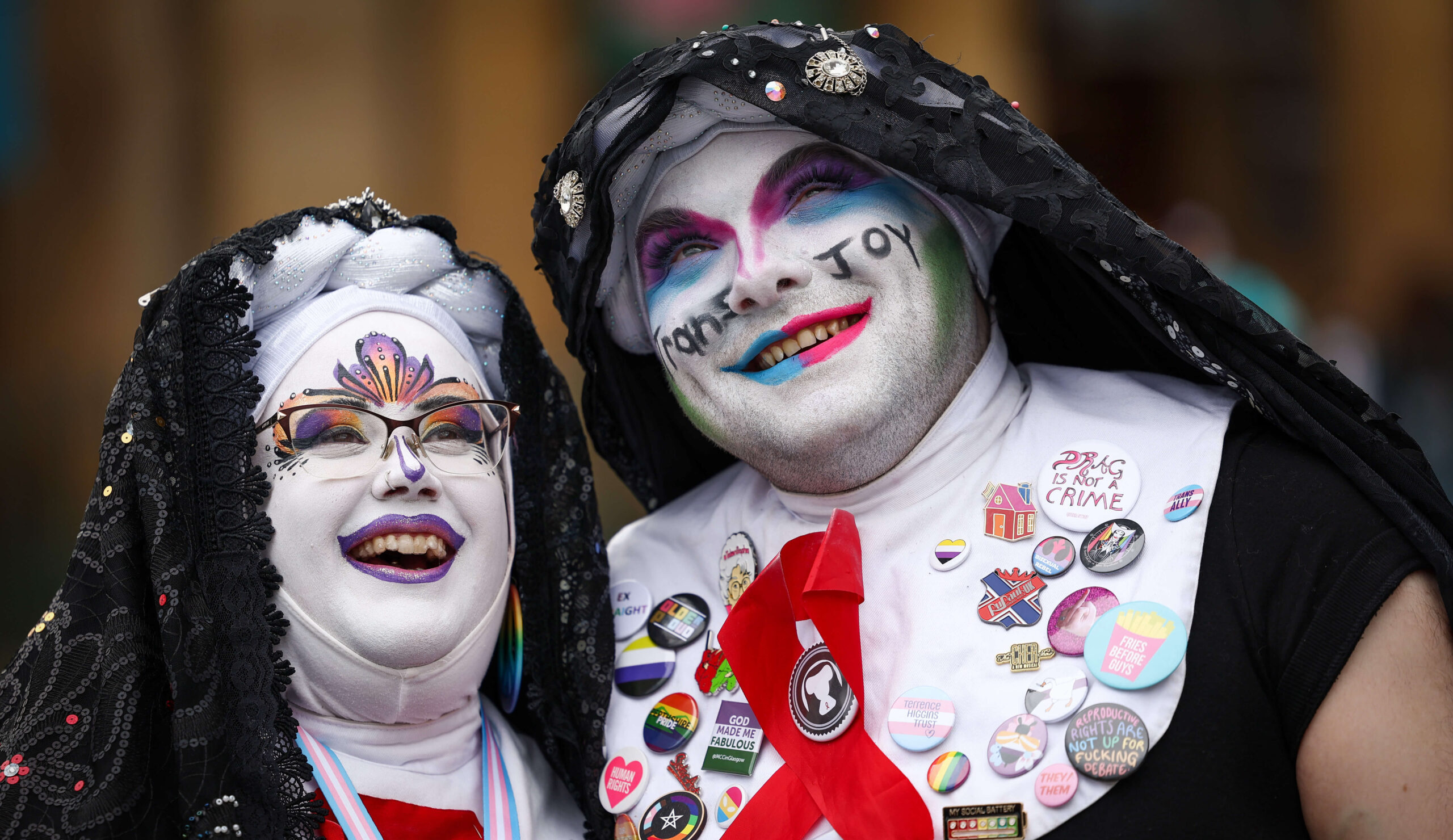The Turn to Transcendence:
The Role of Religion in the Twenty-First Century
by Glenn W. Olsen
(Washington, DC: The Catholic University of America Press, 2010)
The Turn to Transcendence is a great achievement in cultural criticism. Glenn Olsen pulls strands from a vast number of recent cultural critics to weave a somber tapestry of our times. He points the way forward as well, a way that is neither reactionary nor modernist.
The Enlightenment dream was that man would become self-directed and self-perfected by freeing himself from God, eternity, and transcendence. In the past two centuries, a militant secularism caused human life to become nearly “absorbed in and exhausted by its worldly context.” The result was not an increase in human happiness but a growing discontent with the loss of transcendence. The religious nature of man has reasserted itself again. It is becoming clear that the world is not inevitably sliding into secularism. Even though religion seems passé to many Europeans, it remains at the “center of reality” for most human beings and its growth is surging across the globe. The Left’s “bankruptcy” can be seen in its refusal to admit this reality and to face the increasing improbability that religion will ever wither away. What looms in the future, then, is a struggle between “the advocates and opponents of a world without transcendence.” It is doubtful that nations or civilizations can exist for long without “a shared transcendental orientation,” and so the world needs to be made “safe for religion” again in order that a life “both of and not of this world” may be sustained.
In Evangelium Vitae, Olsen notes, John Paul II affirmed that the human being is made for transcendence and that the state may neither decide when human life begins and ends nor be the “envelope” in which all life takes place. Without transcendence, man has no more dignity than the state permits, whereas in reality he is “a mystery, even to himself, and lives in a mystery, or is defined by relation to a Mystery.” In nineteenth-century America, the state assumed spiritual prerogatives, and a civil religion arose, culminating in the divinizing of the state. The result is that today, instead of a public order that tolerates religion, we have a “myth of neutrality” that obliges us to live as a nation with no common view of reality. This myth is actually a cover for liberal democracy’s intolerance toward all religion except for its civil religion. In the view of liberalism, traditional religion is a delusion, a childish fantasy, something to be tolerated in private but not allowed public expression. For example, the Goodridge decision of the Massachusetts Supreme Judicial Court in 2003 asserted that there is “no rational reason” for opposition to same-sex marriage, and so opposition must be the result of “persistent prejudice.” Such a decision reveals, Olsen says, that the religion of many Christians who strive to “live the life of reason” is “so beneath contempt that it may simply be dismissed without argument.”
This silencing of Christians for the sake of the neutral public sphere is an intolerance “specific to liberal democracy.” It is a silencing found also in the liberal press, which fails to report the persecution of Christians or exaggerates the strength and influence of minority religions at the expense of Christianity. Liberal democracy, however, is “blind to its own sectarianism” as it dominates the public order, ignores the “sacred foundations” on which the nation’s identity is based, and suppresses whatever curbs “the uninhibited cultivation of individuality.” An example of this blindness is the Democratic Party’s eliminating the “conscience clause” from the passage on abortion in its party platform, thereby “making assent to the culture of death (or dissimulation) almost a prerequisite for membership.” For liberals, conscience is not “God’s invitation to embrace His law as free subjects” but merely the freedom “to judge as we see best.” This reduction of conscience to willfulness is found “in raw form” in Nazism and “in gloved form in the U.S. Supreme Court’s ruling that we each find or create our own life’s meaning.” Olsen praises G. K. Chesterton’s book What I Saw in America as “the most profound book on America ever written” because it exposes the “voluntarism” that undergirds democracy in its “modern, liberal, American form.” Putting the will at the center of life is just what has brought the West to nihilism.
One of liberal democracy’s chimerical goals, Olsen says, is to establish the complete equality of human beings on a secular premise—only there is “no such premise.” If we simply follow reason and observation, we find that there are natural inequalities among people. By insisting on the opposite, liberals attack nature for the sake of their own “soft utopianism.” In his book on America, Chesterton said that apart from religion there is no basis for “such ideas as that people are equal or—a more complicated question—deserve equal rights.” If a liberal democracy sets aside the divine revelation that all men are created in God’s image, it leaves itself with “only brute willfulness or sentimentality” to support the claim that men are equal. The irrationality of this claim is compounded when liberals refuse “to discuss the question further.”
The “universalizing tendencies” of equal rights, Olsen notes, threaten every traditional authority, including that of parents. Contrary to what liberals imagine, human beings are not born free from those “hierarchies or differences found in nature,” but born into a hierarchical situation called the family. Those who respect the structures of nature use politics to form a society “ordered around those differences,” but liberals use politics “to attack the hierarchies or differences found in nature.” What justice can there be, however, when natural differences between people are ignored? In the French Revolution, the “ideal of fraternité” was an attack on fathers, for if all men were brothers, the natural inequality of father and son was destroyed, and men were left in a “rootless present.” Ah, but life in a rootless present is just what liberals want. We see this in the myth of human origins on which much of their politics is based—Locke’s fiction that human beings started off as “autonomous individuals” who agreed to set up a state. This myth has affected even marriage, turning a Christian covenant into a contract between autonomous individuals under the aegis of civil society’s original contract.
When things swing too far to one side in history, there is often a counterswing to the opposite extreme. Olsen sees Nazism, fascism, and Communism as reactions to liberalism and to the spiritual discontent caused by its promotion of universal rights—rights from which “any notion of a common good raised on a universal idea of the good has been increasingly excluded, thus leaving the societies it creates profoundly specific or non-transcendental.” These ideologies failed because they, too, offered no transcendence. Still, we are no better off for defeating them since we now have a liberal democracy in which humanity is “about as impoverished, if not as brutalized, as if some form of Fascism had proved to be the twentieth-century victor.” Whatever is incompatible with its totalitarian secularism, its subjection of everything to the state, is brutally erased. The resulting “culture state,” while seeming to offer individual autonomy, interferes even in the most intimate sexual matters.
The delusion prevalent in our time is of unlimited autonomy—the notion that “man can know everything and there are no limits on what he may do, especially in the sense that no limits should be placed on science and technology.” Fortunately, there is a counterweight to this delusion: a growing sense of “abject powerlessness” in the face of terrorism, globalization, and the disasters of applied science—“atomic and biological weapons, the destruction of natural resources and of the atmosphere.” Since many are realizing that unlimited autonomy is a mirage, traditional religion is reappearing, along with its claim that there is far more to life than what we perceive with the senses. Olsen cites Benedict XVI, who says that “the coming clash will be between this radical emancipation of man and the great historical cultures.” The moment is ripe, Olsen thinks, for a recovery of the natural law tradition, which can provide (because of its stress on reason) a check both to “religious fanaticism” and to a secularism that claims “all is permitted.”
Liberal democracy isolates man from the past, refuses to “take seriously the burden of evil carried by the race,” and plans for futures than can never be, because they are “not of this world”—for example, the complete elimination of war on the presumption that people are basically good and reasonable. Olsen points out that a “decent” political life is possible only if we accept that human beings are not basically good, as liberals presume, but “seriously flawed, as well as capable of greatness.” The endpoint of liberal democracy is multiculturalism, which makes it impossible for citizens to strive for agreement about the “good.” Multiculturalism not only precludes a “public philosophy or shared worldview” but also destabilizes “any long-term effort to control technology in the name of shared human values.” One may seriously doubt, Olsen warns, whether a nation can endure without “a fair degree of shared vision of reality.” We need a state that encourages good and curbs evil in order to make a “shared human life” possible, not one that insists on remaining “neutral” toward “all claimed conceptions of the good,” however irrational.
Olsen faults the late Richard John Neuhaus for stating that we should not struggle to reduce religious pluralism. Surely, he counters, pluralism cannot be a “higher value” than agreement about ultimate truth. Moreover, “irreconcilable worldviews” make any “substantial sharing in truth impossible for large numbers of people.” Christians need to reenter the public square and permeate American culture with their values, albeit with “a modesty and prudence about the political order far removed from utopianism.” The proper stance for them to take toward the future is “hope, a theological virtue,” not “optimism, a banal confidence that things by a secular measure will turn out well and are getting better.”
Some of the most eloquent passages in this book are those in which Olsen intertwines historical time and eternity, as when he says, for example, “The fullness which had come in Christ was not something that would be surpassed, one stage in a tale of progress, but something available for acceptance or rejection in all historical moments.” Instead of history being only a linear development through time, he envisions it also as happening simultaneously in eternity: “All moments stand equally before God, and in them God’s will is both being done and not being done.” Far from utopia being on the horizon, Olsen sees only an ongoing “struggle between good and evil” throughout time, one that will have “no clear outcome within history.” ♦
Anne Barbeau Gardiner is professor emerita of English at John Jay College of the City University of New York. She has published on Dryden, Milton, and Swift, as well as on Catholics of the seventeenth century.














